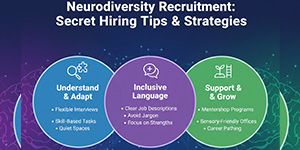Signs You Should Change Jobs & How to Make the Move
Deciding to leave a job can be a heavy emotional process, especially if you've invested years into it. But sometimes, the signs you should change jobs are no longer subtle—they scream for attention. Recognizing the signs it’s time to quit your job and move on can be the very first step in reclaiming your peace, productivity, and purpose.
One of the most telling job burnout symptoms is when your work constantly makes you feel exhausted, even after weekends or holidays. Emotional exhaustion and a constant sense of being unhappy at work are not to be ignored. Your mind and body might be indicating that you are prepared for a new chapter. Your happiness is not a luxury; it is a need for continuous professional success.
 |
Feeling Unhappy at Work More Often Than Not?A common internal alarm that often gets ignored is the feeling of being unhappy at work. When daily tasks feel like a burden, and every Monday feels like a nightmare, it's time to ask the hard question: “Should I quit my job?” You might be stuck in a role where your efforts go unnoticed, or worse, your voice doesn’t matter. |
You may also start feeling like you’re in the wrong career, struggling to find meaning in what you do. This unhappiness is not just transient; it usually intensifies with time. Admitting that your present employment no longer supports your emotional, financial, or professional development is neither weak nor irresponsible.
Dealing with a Toxic Work Environment and Its Impact
A toxic work environment is one of the top contributors to stress and professional dissatisfaction. If your workplace is filled with gossip, lack of respect, micromanagement, or favoritism, these are serious signs you should change jobs. Staying in such an environment not only affects your confidence but can also lead to long-term health issues, both mental and physical.
Being surrounded by negativity every day can lead to chronic job burnout symptoms, which manifest as low energy, apathy, irritability, and even anxiety. If you find yourself constantly adjusting to survive rather than thrive, it's a clear indication of when to leave your job.
Recognizing There's No Career Growth or Development
If you've been working hard for years but remain stagnant in your role, it might be because there’s no career growth potential where you are. The lack of promotions, training opportunities, or even appreciation can be deeply discouraging. These limitations point directly to the signs you should change jobs, especially when management provides no clear development plan.
Every professional merit the chance to grow. Your business should offer that; otherwise, it's time to look into ways to get ready for a career transition in line with your talents, aspirations, and interests. Should you find yourself stuck because of a continual barrier, it might not be a personal restriction but rather a systematic one.
Experiencing Job Burnout Symptoms That Don’t Go Away
Feeling burned out is more than just being tired. Job burnout symptoms include emotional exhaustion, cynicism, and reduced performance. If you're dragging through your day and feel mentally numb toward your tasks, these are major signs it’s time to quit your job and move on.
More importantly, if taking time off doesn't help you feel better, your burnout may have deep roots in the way you work or the role you play at work. If taking a break doesn't get you motivated again, it means you need to change careers and start over.
Questioning if You’re in the Wrong Career Path
At some point, you may wonder: How to know if you're in the wrong career? You might have chosen a job due to external pressures—family expectations, financial stability, or a lack of options at the time. However, if years pass and you still feel detached or unfulfilled, it's a profound sign you should change jobs.
When your passions and your job tasks don't match up, it can make you feel empty. This is your sign if you find yourself envious of people who have different jobs or daydreaming about a different road. Start looking into structured, planned ways to change careers that don't involve making snap choices but instead involve careful planning.
Getting Serious About Career Change Advice and Strategy
Once you've identified the need for change, it’s time to dive into real career change advice. Start by listing what you enjoy doing, where your strengths lie, and what industries align with your values. Knowing how to prepare for a job change includes updating your resume, building a network, and perhaps seeking mentorship.
Don't be afraid to take classes or get certifications that will help you feel more confident and trustworthy in a new area. There are a lot of ways to learn in the world today. Remember that changing jobs isn't a secret; it's a journey of relearning and starting over with a clear goal.
Knowing When to Leave Your Job Respectfully
Understanding when to leave your job is as crucial as recognizing why. Timing is important. Ideally, you want to move when you are financially solid, emotionally ready, and strategically prepared. Leaving without destroying bridges guarantees that you keep positive relationships for possible references or future chances. Maintain professionalism even in a toxic work environment. It says a lot about your character and development. Should you be willing to move forward, do it with a defined goal as you are matching your life with what really counts.
Learning How to Change Careers Without Fear
Making a bold move can feel terrifying, especially if you're switching industries or stepping into unfamiliar terrain. But learning how to change careers is more accessible than ever before. Leverage career coaching, attend webinars, or even shadow professionals in your desired field.
Apply your transferable abilities to close the gap. In some jobs, communication, leadership, innovation, and problem-solving will help you much. an experience should be a strength, not a constraint. Never discount the strength of believing in your ability to grow and change.
Planning How to Prepare for a Job Change Effectively
Preparation is the armor of transition. Before submitting your resignation, it’s essential to strategically plan your next steps. Knowing how to prepare for a job change involves a thoughtful and well-organized approach. Here are some key steps to take:
- Research market trends – Understand which industries are growing, what skills are in demand, and where your experience fits best.
- Update your LinkedIn profile – Ensure your profile reflects your most recent experience, achievements, and skills to attract recruiters.
- Reach out to recruiters and expand your network – Start conversations with industry professionals and recruiters who can guide or support your job search.
- Build a financial cushion – Save enough money to cover at least 3–6 months of expenses in case your transition takes longer than expected.
- Set clear career goals – Know what you’re looking for in your next role, including position, salary, location, and company culture.
- Review and tailor your resume – Customize it to match the roles you’re targeting, highlighting the most relevant achievements.
- Stay mentally prepared – Changing jobs can be emotionally taxing, so prepare yourself for uncertainty and keep a positive mindset.
Remember, it’s not just about quitting—it’s about strategically planning your next career adventure. During this period, reflect on all the signs that led you to consider a job change, as they reinforce and validate your decision to grow and evolve.
Conclusion
Recognizing the signs you should change jobs is not a sign of weakness—it’s an act of strength and self-awareness. Whether it's dealing with job burnout symptoms, enduring a toxic work environment, or simply feeling unhappy at work, your instincts are guiding you toward a better path.
Respect them. Believe that change, even if unpleasant, usually results in the development you have been yearning for. A future in line with your values, abilities, and aspirations may be entered with the correct job transition counsel and planning.
Frequently Asked Questions
1. What are the main signs you should change jobs?
Feeling unhappy at work, being in a toxic environment, lack of career growth, or experiencing job burnout symptoms are key indicators.
2. How do I know when to leave my job?
It's time to think about a shift if your work no longer fits your objectives, provides little development, and harms your mental health.
3. Should I quit my job without another lined up?
Yes, if your present employment is damaging your well-being and you can afford it. But ideally, prepare and plan first.
4. What’s the best career change advice for someone over 30?
Concentrate on transferable talents, seek training, and network with individuals in the new sector. Changing is never too late.
5. What should I do if I feel stuck in my current job?
Reflect on your values, explore new paths, seek career change advice, and take small steps toward change.





